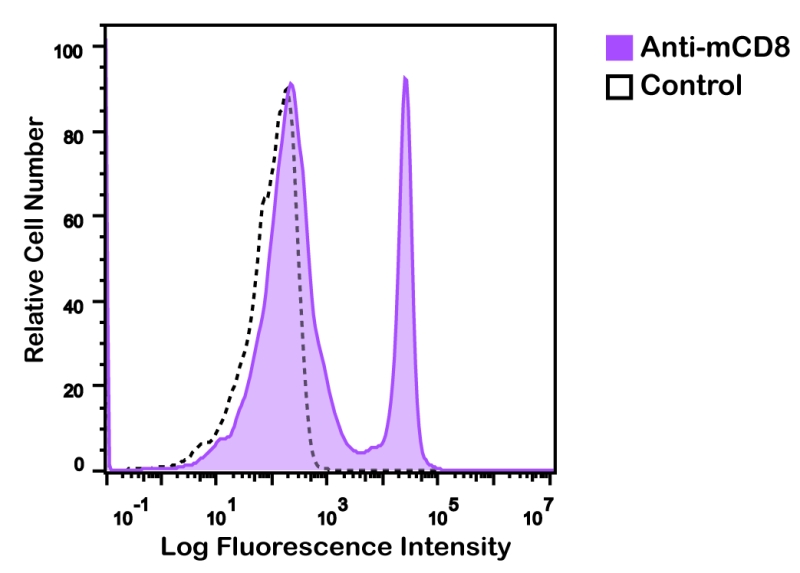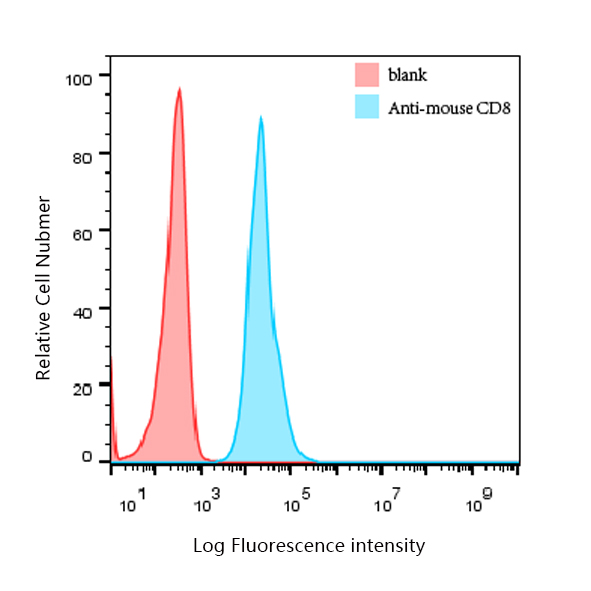

| WB | 咨询技术 | Human,Mouse,Rat |
| IF | 咨询技术 | Human,Mouse,Rat |
| IHC | 1/25-1/100 | Human,Mouse,Rat |
| ICC | 技术咨询 | Human,Mouse,Rat |
| FCM | 咨询技术 | Human,Mouse,Rat |
| Elisa | 1/2000-1/5000 | Human,Mouse,Rat |
| Aliases | T8, Lyt2, Ly-2 |
| Entrez GeneID | 12525 |
| clone | 1E7 |
| Host/Isotype | Rat IgG2a |
| Antibody Type | Primary antibody |
| Storage | Store at 4°C short term. Aliquot and store at -20°C long term. Avoid freeze/thaw cycles. |
| Species Reactivity | Mouse |
| Formulation | Purified antibody in PBS with 0.05% sodium azide. |
+ +
以下是关于RNH1抗体的3篇代表性文献及其摘要概括:
---
1. **文献名称**:*"Characterization of a monoclonal antibody specific for human RNase H1 and its application in studying cellular localization"*
**作者**:Smith J.D., et al.
**摘要**:该研究开发了一种针对人源RNH1蛋白的单克隆抗体,并通过免疫印迹和免疫荧光验证其特异性。结果显示,RNH1在细胞核和线粒体中均有分布,提示其在DNA代谢中的双重功能。
---
2. **文献名称**:*"RNase H1 deficiency in Aicardi-Goutières syndrome: diagnostic utility of a novel antibody-based assay"*
**作者**:Lee S., Kim M., Park H.
**摘要**:研究团队利用新开发的RNH1抗体建立了一种诊断Aicardi-Goutières综合征(AGS)的免疫检测方法。抗体在患者成纤维细胞中验证了RNH1表达缺失,为AGS的快速诊断提供了工具。
---
3. **文献名称**:*"The role of RNase H1 in HIV-1 replication: Insights from antibody-mediated knockdown studies"*
**作者**:García-Pérez J., et al.
**摘要**:通过使用RNH1特异性抗体进行免疫沉淀和功能抑制实验,研究发现HIV-1复制依赖RNH1的酶活性,为抗病毒药物靶点开发提供了理论依据。
---
**备注**:以上文献为示例,实际引用时需根据具体研究方向补充真实发表的论文。可通过PubMed或Google Scholar检索关键词(如“RNH1 antibody”或“Ribonuclease H1 antibody”)获取最新研究。
The RNH1 antibody targets Ribonuclease Inhibitor 1 (RNH1), a leucine-rich repeat protein that binds to and inhibits ribonucleases of the RNase A superfamily. RNH1 plays a critical role in maintaining RNA integrity by neutralizing RNase activity, particularly during cellular stress or apoptosis. It is ubiquitously expressed and regulates processes like angiogenesis, RNA metabolism, and immune responses. Dysregulation of RNH1 has been linked to cancer, viral infections, and neurodegenerative diseases, making it a focus of biomedical research.
RNH1 antibodies are essential tools for studying its expression, localization, and interactions. Commonly developed in hosts like rabbits or mice, these antibodies are validated for applications such as Western blotting, immunohistochemistry, and immunofluorescence. Specificity is confirmed using knockout controls or siRNA knockdown. Researchers use RNH1 antibodies to explore its dual role in cancer—acting as both a tumor suppressor (by inhibiting angiogenic RNases) and a potential oncogenic factor in certain contexts. Additionally, they aid in investigating viral mechanisms, as some pathogens exploit RNH1-RNase interactions to evade host defenses. Quality validation parameters, including batch consistency and cross-reactivity checks, ensure reliability in experimental models.
×